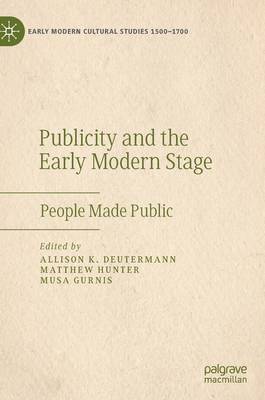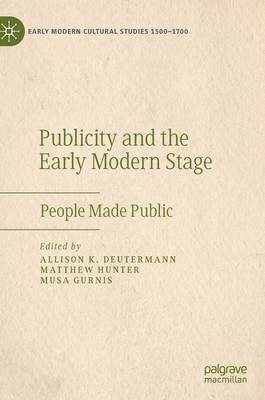
- Retrait gratuit dans votre magasin Club
- 7.000.000 titres dans notre catalogue
- Payer en toute sécurité
- Toujours un magasin près de chez vous
- Retrait gratuit dans votre magasin Club
- 7.000.000 titres dans notre catalogue
- Payer en toute sécurité
- Toujours un magasin près de chez vous
Publicity and the Early Modern Stage
People Made Public
Description
What did publicity look like before the eighteenth century? What were its uses and effects, and around whom was it organized? The essays in this collection ask these questions of early modern London. Together, they argue that commercial theater was a vital engine in celebrity's production. The men and women associated with playing--not just actors and authors, but playgoers, characters, and the extraordinary local figures adjunct to playhouse productions--introduced new ways of thinking about the function and meaning of fame in the period; about the networks of communication through which it spread; and about theatrical publics. Drawing on the insights of Habermasean public sphere theory and on the interdisciplinary field of celebrity studies, Publicity and the Early Modern Stage introduces a new and comprehensive look at early modern theories and experiences of publicity.
Spécifications
Parties prenantes
- Editeur:
Contenu
- Nombre de pages :
- 294
- Langue:
- Anglais
- Collection :
Caractéristiques
- EAN:
- 9783030523312
- Date de parution :
- 08-05-21
- Format:
- Livre relié
- Format numérique:
- Genaaid
- Dimensions :
- 148 mm x 210 mm
- Poids :
- 562 g






